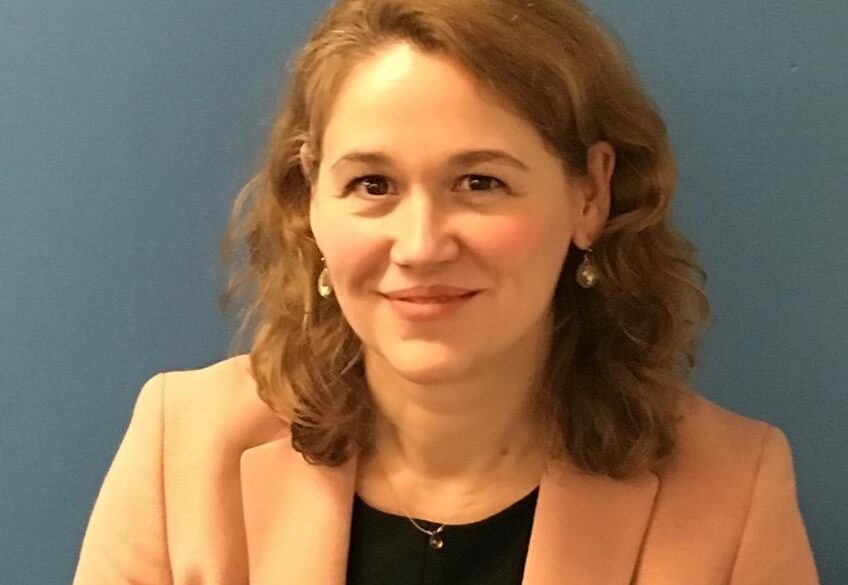
Pursue What Really Drives You
Lynette Guastaferro is the chief executive officer of Teaching Matters a non-profit that focuses on urban teachers at high poverty schools. They are achieving remarkable success.
Guastaferro has devoted much of her career to studying what makes organizations work. First as a management consultant at PricewaterhouseCoopers and then as CEO of Teaching Matters.
What work cultures help employees thrive? What is needed to achieve? How can shared leadership lead to better outcomes?
I had a chance to interview Ms. Guastaferro about those issues and others recently. Here are some highlights from that interview:
Jill Griffin: Where did you grow up? Describe your early childhood and its significance on your life.
Lynette Guastaferro: It was instilled in me early on that the key to success was education. In many ways, my family’s story is the classic immigrant story. As adults, my parents emigrated to the USA; my father from Italy, my mother from England. They settled in the Bronx where my father completed his GED and pursued his college degree. I was just 4 years old. Still, I remember we had our desks alongside each other and would “do our homework” together. Watching him as a non-native speaker struggling to complete his assignments made it very clear to me that education was the gateway to opportunity.
Griffin: When did you first get the whisper you belonged in business/education?
Guastaferro: My first experience in teaching was in the 5th grade, when I was selected to be a tutor for kids who were struggling academically in my school. And, I just loved it. In my mind, I felt that being a teacher was the most important thing anybody could ever do.
Griffin: Why didn’t you become a teacher and how did you end up at Teaching Matters?
Guastaferro: My parents were immigrants and I knew they had made many sacrifices, family, home, and lifestyle, to give me opportunities they didn’t have. Somewhere between fifth grade and applying to college, like many children, I decided that teaching was not a profession that was respected like others. In my mind I had to be a lawyer or a doctor. During my senior year at Williams College, I accepted a job at Price Waterhouse Coopers as a management consultant supporting the public sector.
When PWC created a practice to support education systems, I seized the opportunity and joined the team. In the end, you really shouldn’t try to escape what drives you.
Griffin: What’s a great piece of business or life advice have you received, who gave it to you, and how has it enhanced your life?
Guastaferro: The best people I ever worked under at PWC were those who were really focused on my learning. They saw every project as an opportunity for me to grow. The best managers think like teachers. They look at the challenges the next assignment presents and identify opportunities for their team to learn and grow. They share ownership of the project. They hold folks accountable while still rewarding smart risk-taking. This keeps the best people in the profession and is ultimately good for the client or in our case the student.
To this day, I value people who take initiative and don’t want things spelled out for them. In any profession there are going to be key practices one has to master but you still have to bring your own thinking into the work.
Griffin: Please give me the top bullet points in your Personal Leadership Credo.
Guastaferro:
Radical Transparency – I am a big believer in giving our employees, our donors and our school partners as much information as possible. Information empowers people and puts them in a better position to contribute.
Continuous Learning – The best leaders are continuous learners. I see leadership as an extension of teaching. If you want to motivate your employees, think about what they can learn from the task at hand. If people are evolving and learning, they’ll stay.
Listen to your Critics – The disruptor within your organization may be the one who is directing you to your next step. Over time the game changes, to maintain relevance you may have to revamp how you do what you do.
Support Diversity – How do leaders support the drive to be inclusive and further create organizations where folks from different perspectives feel a true sense of belonging? How do leaders ensure voices are heard – regardless of positional status? These are questions I ask myself all the time and believe me it’s a work in progress. By being transparent, humble, and genuinely valuing the unique perspectives and ideas people bring, you create teams that can see farther and wider and take advantage of opportunities that less diverse teams will miss.
Griffin: What advice do you have for young, talented, ambitious women who want to rise?
Guastaferro: If anything I think we (those who are more established in their professions) have a lot to learn from younger women. I see them embracing risk, taking the initiative and elevating each other’s voices.
Take notes from these younger folks, see how they organize, how they disrupt. Then, support them. They are coming at us with some really new perspectives. If they propose something that sounds impossible, don’t immediately dismiss their ideas. Let’s use our experience in how to work in the system to help them be successful.
To those who are just starting out I’d say figure out how to build bridges to this older generation. You can respect the folks that came before you without sacrificing your ideals. There is some exciting disruption coming from younger people. Many are pushing back on capitalism, on structural racism. Don’t assume that those who came before you can’t connect to those issues. We can all learn from each other.



